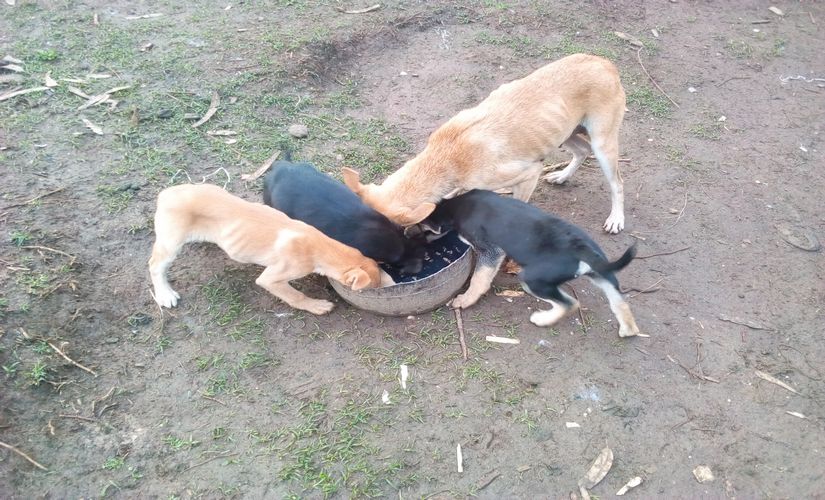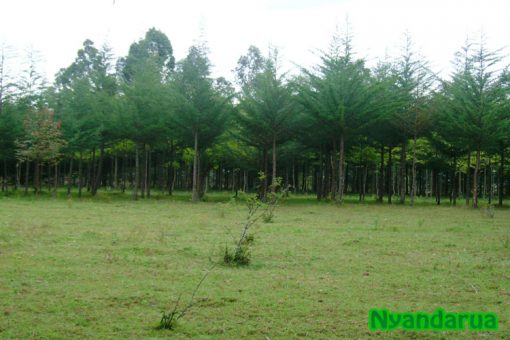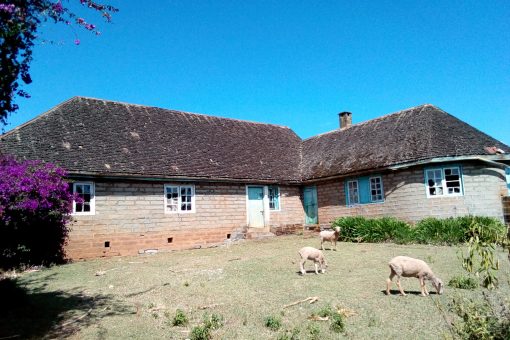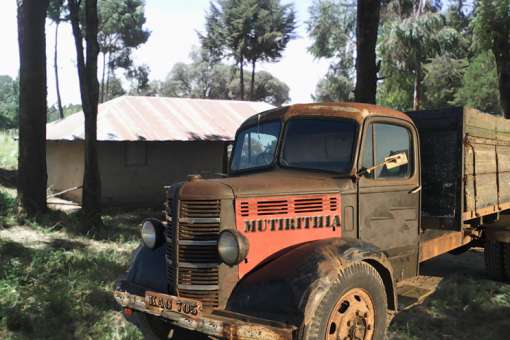The avalanche of returned milk did not just affect the humans. Dogs were not spared either. Africans do not have a very good track record of treating their dogs humanely. In most African societies, dogs are kept in the home compound for security reasons only. They are watchdogs not pets. They therefore live outside enduring all kinds of weather elements. Majority of families only feed their dogs if there are scraps gathered from the human table or there is food that has gone bad and the family can no longer eat it, otherwise most dogs go hungry.
In my family however, my father loved dogs and he made sure we treated them well. He rationalized that dogs remain outdoors regardless of the weather, as their human masters sleep comfortably inside the house, in their warm beds, while the dogs keep watch throughout the night. Unlike hired security guards, dogs work for free and they never demand a coat to keep warm in the chilly Nyandarua nights or a flashlight to illuminate the dark nights. With that strong case made for our canines, my father concluded that the least we could do for our dogs was feed them at least one good meal a day. And so we did.
We always had a minimum of four male German Shepherd dogs. They were fierce, but well disciplined. Every morning at daybreak, they went to their respective stations and waited to be leashed. At dusk, they were unleashed and they ran to the bushes outside the home compound to relieve themselves. They came back in a hurry ready for their evening meal. Maize was milled specifically for our dogs and every evening when they were released from their leashes, they were fed sizeable portions of Ugali. My father also brought scraps from hotels and butcheries whenever he made it home before the canines dinner time.
During the season of returned milk, our dogs were not spared either. We made their Ugali with milk instead of water, and we poured out milk for them to drink. Usually, they never got anything to drink, which makes me wonder how they quenched their thirst. But during those days of “milk floods” they were offered a two course meal. Food and drink, which unknowing to them, was milk and more milk. The first day they feasted on the rich creamy Ugali and gulped down the equally creamy milk. I am sure they wondered what the celebration was, or what happened to their otherwise stingy human masters. On the second day, the same two course meal was served to them and they wolfed it down happily, but they still had their suspicions. This was completely out of the ordinary. Before long, it dawned on them what was actually happening. They were being used to finish unwanted milk stocks, but a dog got to eat, right?
By the third day, they ate only half of their Ugali and did not touch the milk. By the forth day, they waited excitedly as usual as their “Chef” of the day approached with their dinner. As they surrounded the chef, jostling each other for front row space to get the first scoop, the chef laid down the Karai in front of them ready to scoop out their portions. The moment the hungry dogs saw the white lump of Ugali, they assumed it was milk being served to them yet AGAIN. They took off running, barking wildly, with their tails shot up straight in the air. Our dogs went into self imposed exile outside the home compound until the threat of rich Ugali and creamy milk had passed. That is how traumatizing the returned milk was to humans and animals alike.




